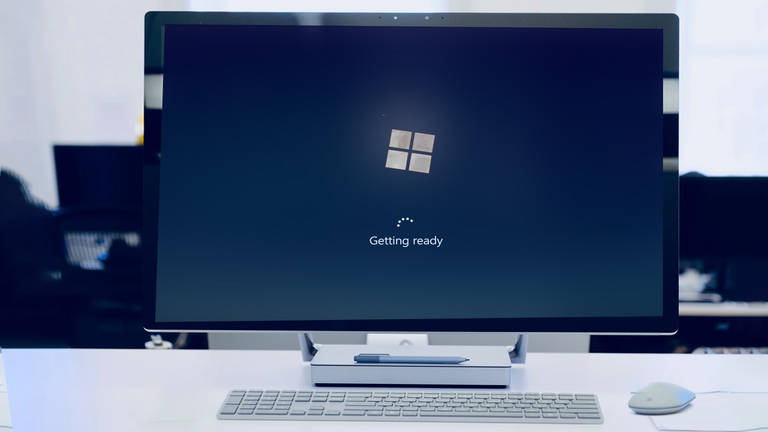
Microsoft and Windows are basically synonymous, as the bulk of Microsoft's massive success can be explained by the easy to use and affordable operating system, used around the world. Consequently, most of us have become used to a new Windows version coming out every couple of years. However, it's been more than six years since Windows 10 came out, and we haven't heard anything about the next version of Windows. So here's why there is no Windows 11.
Making an operating system is not easy. It requires years of development, testing, and optimization. Although Microsoft has gone relatively good at developing operating systems over the years, nonetheless, it takes a lot of manpower, which costs a lot of money. The work and financial investment would be worth it if the end product was stellar, but this too is not the case nowadays. Technology advances at such a fast rate that by the time Microsoft finishes development of an operating system, the new OS is already a couple of years behind the technology of the day. If Microsoft were to set out on creating the next OS right after the launch of the first OS, this gets them stuck in a loop of endlessly creating new operating systems that are never truly up to date.
Meanwhile, Microsoft's marketing department also has to work really hard at promoting the new Windows. They have to meet with manufacturers like Dell and HP, and create new deals to incorporate the new operating system into their upcoming machines. They also have to create promotional material in order to communicate to customers that there is a new OS available.
As you can see, this cycle constantly constrains a significant amount of Microsoft's development and marketing team's resource to Windows. It wouldn't be a problem if these efforts were at least rewarded with large revenues and profits, but this isn't the case. Indeed, Microsoft's operating system sells extremely well, and makes Microsoft billions of dollars, but did Microsoft really need to develop a new operating system to retain this market?
Well the answer is No. Since 2000, the consumer PC industry has radically changed to favor ease of use. Gone are the days where you bought Windows licenses separately at best buy, or transferred over your old Windows license onto your new computer, unless you're building your own PC, which is a very very small portion of the PC industry.
You likely don't even think about the operating system as a separate product. For the average customer, whether corporate or individual, you buy a computer or laptop and it just works. In other words, the vast majority of revenue from Windows comes from computer manufacturers licensing Windows as opposed to individual customers buying licenses straight from Microsoft.
Aside from this, computers are lasting longer, and operating systems are more stable than ever before. So the average customer is unlikely to upgrade their OS or computer just because a new Windows came out. They might be intrigued by the new operating system but chances are they're just going to wait until the next time they buy a computer to upgrade their OS at the same time. A lack of a new operating system isn't going to deter a customer from buying a new computer. Thus, stopping development of Windows was not only going to save Microsoft billions in terms of research and marketing, but it wasn't really going to affect their top line either.
Another major area in which Microsoft would save a lot of money and headache is within their support division. Before settling on Windows 10, Microsoft would have to continuously support older versions of Windows as well. Oftentimes this consisted of developing patches for various issues on older versions of Windows, which had already been fixed in the newer versions. Clearly, this was a further inefficient use of manpower, giving Microsoft more reason to ditch operating system development.
Even though, something to keep in mind is that stopping development of new operating systems doesn't mean that Microsoft couldn't keep updating their current operating system. And this is precisely what they have been doing for the past couple of years. As we all know, every now and then we'll get a notification that there is an update available, and we can choose to update the next time we shut down. These updates don't add anything major like a new toolbar or start menu, rather they're mostly related to optimization, reducing the frequency of the blue screen of death, and so on.
Moving on, there was also another major realization during this time period for Microsoft. Their revenue and stock price had more or less gone sideways for 15 years. The dot-com crash was something that all tech companies experienced but unlike Microsoft and Cisco, innovative tech companies like Apple and Amazon were quickly able to grow past their dot-com highs. The truth is, despite the dot-com crash, the tech industry was still swiftly growing while Microsoft was still making operating systems in their office suite, just like they were in the 1980s and 1990s.
That made sense in the 80s and 90s when the infrastructure for widespread computer use was still being established, but by the early 2000s the majority of the growth within the computer infrastructure space was done, and the real growth opportunity ahead was how the infrastructure was going to be used.
The company that builds a road likely made a lot of money, but the real money in long term is made by the companies on the side of the road. For example, Microsoft's market cap hovered in the low 200 billion range. Meanwhile, Amazon was pulling in 100 billion dollars in revenue annually by the end of 2015. A similar case can be made with Google, Facebook, Alibaba, Instagram, and many many more. The computer hardware and OS space was worth hundreds of billions of dollars, which is awesome. However, the market that based their businesses on this technology were worth trillions, if not tens of trillions.
if you haven't noticed yet, there are a variety of valid reasons Microsoft stops to develop a new version of Windows, but the main overarching theme is that Microsoft is no longer a consumer business.Of course, many of their products are still used by regular people. However, in the end, the vast majority of Microsoft's revenue comes from business to business transactions, whether that be Windows licensing to Dell, Microsoft office licensing to UCLA, or cloud infrastructure support for Verizon and MSI Plus. Directly appealing to customers through a new flashy version of Windows or a cool new Microsoft office refresh is no longer their focus. Instead, their focus lies in making their products as simple and reliable as possible, in order to catch and retain as many business customers as possible over the long term. Taking a look at their stock growth, this seems to have worked out phenomenally, so it is unlikely that Microsoft will be shifting back anytime soon.









